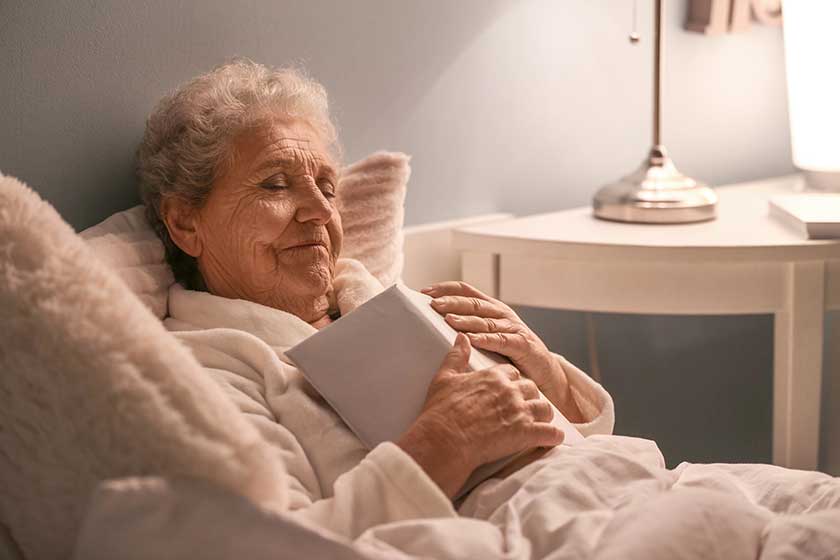Nighttime Routines: How Assisted Living Helps Improve Sleep Quality

Getting a good night's sleep becomes increasingly important as we age, and finding the right environment to support this need is crucial. If you or your loved one is struggling with sleep, Assisted Living could offer the solution you're looking for.
Assisted Living communities prioritize sleep quality through personalized nighttime routines and specialized care. Let us take a closer look at the synergy between Assisted Living and sleep quality.
The Importance of Quality Sleep
Quality sleep provides an opportunity to rest and rejuvenate the mind and body, both of which are essential for overall health and well-being. As we age, achieving restful sleep can become more challenging due to various factors such as changes in sleep patterns, medical conditions or environmental factors.
How Assisted Living Helps Improve Sleep Quality
Consider specific ways retirement communities help to address this challenge:
- Tailored Nighttime Routines
Assisted Living communities recognize the unique sleep needs of residents in the golden years and tailor nighttime routines accordingly. They provide calming activities before bed and adjust lighting and noise levels, creating an environment conducive to better sleep.
- Expert Care and Support
One of the key advantages of living in these neighborhoods is the availability of trained team members who understand the complexities of sleep issues. Caregivers help in managing medication schedules, addressing discomfort and providing emotional support, addressing any sleep-related concerns promptly.
- Promoting Physical Comfort
Physical comfort plays a significant role in sleep quality, especially if you or your loved one is dealing with mobility issues or chronic pain. Retirement community amenities such as adjustable beds, ergonomic furniture and specialized mattresses can improve physical comfort and promote better sleep.
- Encouraging Social Engagement
Loneliness and social isolation can negatively impact sleep quality. Here, you get opportunities for social engagement through group activities, events and communal dining, enjoying a sense of belonging and connection that can positively influence sleep patterns.
- Using Technology for Sleep Monitoring
Some communities incorporate the use of technology to monitor sleep patterns and identify any potential issues. From wearable devices to smart sensors in bedrooms, these innovations help caregivers track sleep quality and make necessary adjustments to improve overall well-being.
- Incorporating Relaxation Techniques
In certain communities, residents learn relaxation techniques such as gentle stretching exercises, meditation or soothing music into nightly routines. These practices help calm the mind and body, setting the pace for a restful night's sleep.
- Nutritional Support for Better Sleep
Diet plays a significant role in sleep quality, and retirement communities recognize this by offering nutritious meals and snacks designed to support a good night's rest. They might include foods rich in tryptophan, magnesium and melatonin (such as turkey, bananas, and almonds) in menus to promote better sleep.
A Holistic Approach to Restful Nights
As you or your loved ones get into the golden years, it is important to prioritize sleep quality in order to maintain good health and vitality.
Assisted Living communities offer a holistic approach to sleep care, providing tailored nighttime routines, expert support, and a nurturing environment to ensure you or your loved one enjoy restful nights and wake up refreshed, ready to take on each day with renewed energy and enthusiasm.
